Introduction to Laser Crystal Types in Medical Aesthetics
Welcome to the fascinating world of laser technology in medical aesthetics. One of the crucial components of these lasers is the laser crystal. In the heart of every aesthetic laser device, laser crystals dictate the performance, application, and effectiveness of the treatment. Here, we’ll dive deep into the complex realm of laser crystals used in medical aesthetics, such as Ruby, Alexandrite, Nd:YAG, and Er:YAG. Our aim is to make this complex subject more approachable for professionals looking to make informed decisions.
Journeying through the Realm of Medical Aesthetic Laser Crystals
Delving into the world of medical aesthetics, we quickly find ourselves in the midst of a complex landscape marked by innovative technologies and intricate concepts. Prominent among these is the arena of medical aesthetic laser crystals – the very core of laser treatments that have revolutionized the beauty industry. Let’s unravel the unique characteristics and applications of these laser crystals, including Ruby, Alexandrite, Nd:YAG, and Er:YAG.
Ruby: The Pioneering Laser Crystal
At the dawn of laser technology, the Ruby laser crystal was the first to grace the field of aesthetic treatments. The Ruby laser generates a deep red light with a wavelength of 694 nanometers (nm). This wavelength makes it particularly effective for treatments requiring deep penetration into the skin, such as tackling pigmented lesions and tattoo removal. Its capacity to target darker pigments made it the initial choice for these treatments. Despite its pioneering role, its usage has somewhat declined due to the potential risk of hypo-pigmentation, especially in darker skin types.
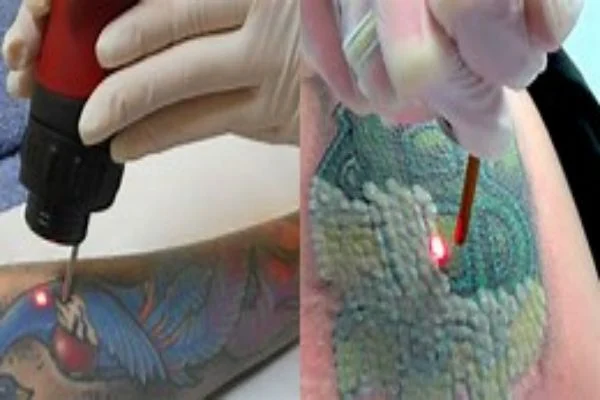
Alexandrite: Precision in Hair Removal
The Alexandrite laser crystal is the undisputed leader when it comes to hair removal. Its distinct near-infrared light, with a wavelength of 755nm, allows it to target the melanin in hair follicles with exceptional precision. This makes Alexandrite lasers a preferred choice for hair removal treatments, especially in lighter skin types. With its rapid treatment capacity attributed to the larger spot size, Alexandrite has redefined laser hair removal efficacy.
Nd:YAG: A Crystal of Many Facets
The Nd:YAG crystal stands out in the realm of medical aesthetic laser crystals due to its sheer versatility. It emits light at two primary wavelengths: 1064nm and 1320nm. Its longer wavelength allows for deep penetration into the skin, making it ideal for a range of treatments such as skin rejuvenation, vascular lesion treatments, and even hair removal in darker skin types. The Nd:YAG’s compatibility with all skin types truly sets it apart in the world of aesthetic lasers.
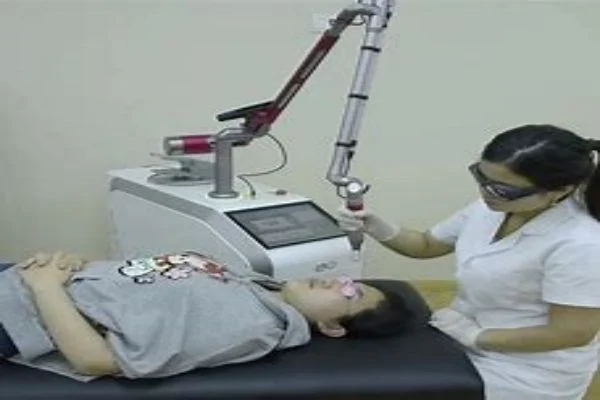
Er:YAG: Master of Skin Resurfacing
The Er:YAG crystal emits light at a wavelength of 2940nm, specializing in skin resurfacing and ablative treatments. Its high absorption by water in the tissue allows for precise ablation of the skin layers, resulting in minimal thermal damage to surrounding tissues. This laser crystal type has proven to be particularly effective for treatments such as acne scars, wrinkles, and other skin surface irregularities, making it a reliable choice for skin resurfacing treatments.
Understanding Laser Crystals: Wavelengths and Pulse Durations
The unique characteristics and applications of these laser crystals are primarily defined by two fundamental parameters: wavelength and pulse duration. The wavelength determines the depth of penetration into the skin and the specific chromophore (color-bearing target in the skin) that the laser will effectively target.
Meanwhile, the pulse duration – the length of time the laser is in contact with the skin – contributes to the treatment’s safety and effectiveness. Shorter pulse durations are typically used for small, superficial targets, while longer pulses are used for larger, deeper targets.
Through understanding these intricate differences in terms of wavelengths, pulse durations, and applications, professionals can make more informed choices, tailoring each aesthetic treatment to specific patient needs and treatment objectives. As we continue to demystify the world of laser crystals, it’s clear that our journey has only just begun. The future promises even more exciting advancements and applications in the fascinating arena of medical aesthetic lasers.
Venturing into the World of Laser Crystals in Medical Aesthetics
In the field of medical aesthetics, laser crystals reign supreme. These powerhouses form the core of laser devices, determining their performance, specific applications, and treatment effectiveness. Here, we’ll take a closer look at the major laser crystals, such as Ruby, Alexandrite, Nd:YAG, and Er:YAG, shedding light on their distinct properties and their suitability for various aesthetic treatments.
Ruby: The Powerhouse for Tattoo Removal
When it comes to tattoo removal, the Ruby crystal comes to the forefront. It emits a deep red light at a wavelength of 694nm, enabling it to penetrate deep into the skin layers and effectively target tattoo ink. The Ruby crystal is especially effective on blue and green pigments, making it a preferred choice for removing or fading tattoos with these colors.
Alexandrite: Leading the Charge in Hair Removal
The Alexandrite crystal is synonymous with laser hair removal. It generates a near-infrared light with a wavelength of 755nm, allowing it to precisely target and destroy hair follicles. This results in significant reduction of hair growth over multiple treatment sessions. Thanks to its larger spot size and fast repetition rates, Alexandrite lasers offer quicker treatment times, adding to their popularity in hair removal procedures.
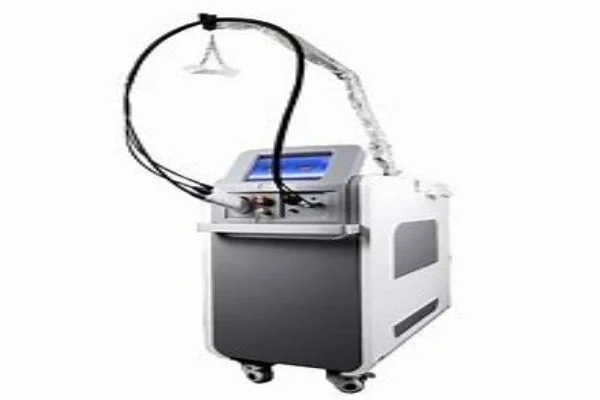
Nd:YAG: Champion of Skin Rejuvenation
The Nd:YAG crystal truly shines in skin rejuvenation treatments. It emits light at two primary wavelengths: 1064nm and 1320nm. The longer wavelength of 1064nm allows for deeper skin penetration, making it effective for treating deeper skin structures, thus providing rejuvenation from within. Moreover, the Nd:YAG laser is safe and effective for all skin types, making it a versatile tool in the aesthetic practitioner’s toolkit.
Er:YAG: The Expert in Skin Resurfacing
When it comes to skin resurfacing, the Er:YAG crystal stands unrivaled. It emits light at a wavelength of 2940nm, which is highly absorbed by water – the main component of skin tissue. This results in precise and controlled ablation of the skin layers, leading to effective removal of the outermost skin layers and promoting the growth of new, healthy skin. Consequently, the Er:YAG crystal is the crystal of choice for treatments like acne scars, wrinkles, and other skin irregularities.
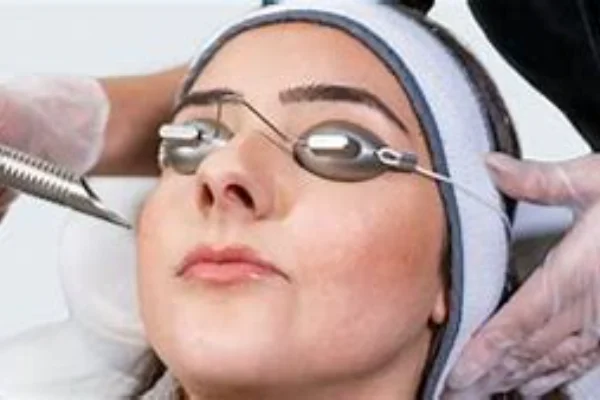
Choosing the Optimal Crystal for Your Desired Outcome
Understanding the distinct properties of each of these laser crystals is fundamental to achieving the best treatment outcomes. The Ruby crystal’s effectiveness in tattoo removal, the Alexandrite crystal’s prowess in hair removal, the Nd:YAG crystal’s versatility in skin rejuvenation, and the Er:YAG crystal’s precision in skin resurfacing all highlight the need for correct crystal selection.
In essence, gaining insights into these laser crystals’ distinct properties is not just about understanding the science behind medical aesthetic treatments. It’s about empowering professionals to choose the optimal laser crystal that aligns with their treatment goals, enhancing patient satisfaction and treatment success. The realm of medical aesthetic laser crystals is indeed rich and complex, and navigating it with informed decisions can truly make all the difference.
Simplifying Crystal Selection for Medical Aesthetic Lasers
Deciding on the appropriate laser crystal for aesthetic treatments can be a daunting task given the diverse options available. However, understanding each crystal’s unique properties, applications, and compatibility with different treatments can simplify this selection process. Let’s examine and contrast the leading laser crystal types – Ruby, Alexandrite, Nd:YAG, and Er:YAG – to aid in making informed decisions.
Ruby Vs. Alexandrite: Unraveling the Differences
While Ruby and Alexandrite crystals both find applications in hair removal and pigmented lesion treatments, their differing characteristics make them suited to distinct scenarios.
Ruby lasers, with their deep red light at 694nm, are effective at reaching deeper layers of the skin and are ideal for removing darker pigments, particularly for tattoo removal. However, Ruby lasers pose a risk of hypo-pigmentation, especially in darker skin types.
On the other hand, Alexandrite lasers, with their near-infrared light at 755nm, are efficient at targeting melanin in hair follicles, making them the go-to option for laser hair removal. However, their efficiency decreases for darker skin tones, limiting their versatility.
Nd:YAG Vs. Er:YAG: Contrasting Applications
The Nd:YAG and Er:YAG crystals, while sharing the ‘YAG’ component, diverge significantly in their applications and strengths.
Nd:YAG lasers, with their dual wavelengths of 1064nm and 1320nm, offer deeper skin penetration and versatility. They excel in a range of treatments such as skin rejuvenation, vascular lesion treatments, and hair removal in darker skin types.
Conversely, Er:YAG lasers, with a wavelength of 2940nm, are absorbed well by water in tissues, allowing for precise skin ablation. These lasers are a popular choice for skin resurfacing treatments, tackling conditions like acne scars, wrinkles, and skin irregularities.
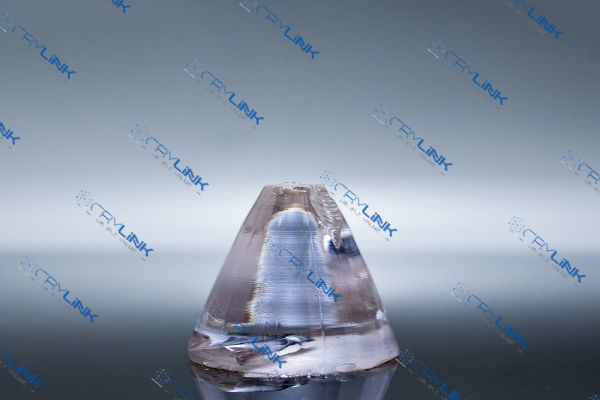
Informed Decision Making in Crystal Selection
When comparing and contrasting these laser crystals, it becomes evident that the choice of crystal plays a pivotal role in the treatment’s effectiveness. Understanding these diverse options helps simplify the selection process, equipping professionals with the knowledge needed to choose the most suitable laser crystal.
Whether it’s deciding between a Ruby and Alexandrite laser for hair removal or between an Nd:YAG and Er:YAG for skin rejuvenation, understanding the different characteristics and applications of these laser crystals empowers professionals. This empowerment facilitates informed decision-making, helping to ensure optimal treatment outcomes in the ever-evolving field of medical aesthetic lasers.
Conclusion: Demystifying Laser Crystal Selection
The landscape of laser crystals in medical aesthetics is diverse and sophisticated. A deep understanding of these elements allows professionals to harness their unique properties and achieve desired treatment outcomes. This guide provides a foundation for that understanding, empowering you to make the right crystal selection for your aesthetic laser treatments.
FAQs
- What is a laser crystal?
A laser crystal is a unique material that amplifies light to emit it as a concentrated laser beam. - Why is the choice of laser crystal important in aesthetic treatments?
The choice of crystal determines key laser parameters, like wavelength and pulse duration, affecting the treatment’s effectiveness and safety. - Which laser crystal is best for hair removal?
The Alexandrite crystal is considered the gold standard for laser hair removal. - Is the Nd:YAG crystal suitable for all skin types?
Yes, the Nd:YAG crystal is safe and effective for all skin types, including darker skin tones. - Which laser crystal is used for skin resurfacing?
The Er:YAG crystal is typically used for skin resurfacing and ablative treatments due to its high absorption by water in tissues.

Frank
Frank graduated from the University of Shanghai for Science and Technology, majoring in optics. As a technical engineer at Crylink Company, he deeply understands crystal materials and laser components.
Related Video(s) with this Article
Related Product(s) with this Article
Related Application(s) with this Article
